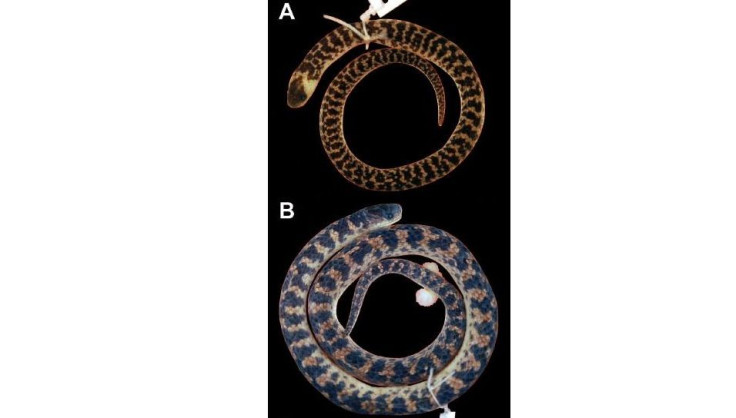
A new snake species has been discovered in Brazil, according to an announcement from scientists in the South American nation. The non-venomous snake, which has been named Atractus spinalis, was identified by scientists from the universities of Rio de Janeiro and São Paulo, in collaboration with the Brazilian National Center for Research, the Conservation of Reptiles and Amphibians and the Boticario Group Foundation for Nature Protection.
Here are four fast facts about the Atractus spinalis:
1. The Atractus spinalis belongs to the Dipsadidae family of snakes.
2. The natural habitat of the Atractus spinalis are the savannas of the central part of Brazil. The specimen discovered was found under rocks in the Serra do Espinhaço mountains.
3. The specimen of Atractus spinalis measured one foot long.
4. The Atractus spinalis is reddish in color and has light brown marks.
Earlier this year, scientists re-discovered the Clarion nightsnake, which was believed to have gone extinct after last being spotted in 1936. According to PLOS ONE scientific journal, a researcher for the National Museum of Natural History in Washington have re-discovered the species. Daniel Mulcahy, and Juan Martinez Gomez of Mexico's Ecology Institute, planned an expedition last May to mimic Beebe's visit. Their rationale was simple: The island's ecosystem changes drastically from season to season so their best chance of finding the snake is to follow Beebe's steps and visit during the same season.
It was one of Martinez Gomez's graduate students, Juan Alberto Cervantes, who spotted the snake for the first time in almost 80 years. In order to verify the identity of the snake, researchers used DNA analysis to learn more about the specimen. Considering that Beebe's specimen was said to be a labeling error, the National Museum of Natural History said Mulcahy "uncovered the controversy surrounding the inclusion of this snake in the scientific record, and found that it appears to be the only species ever to be discarded due to a presumed locality error."
© 2025 Latin Times. All rights reserved. Do not reproduce without permission.




